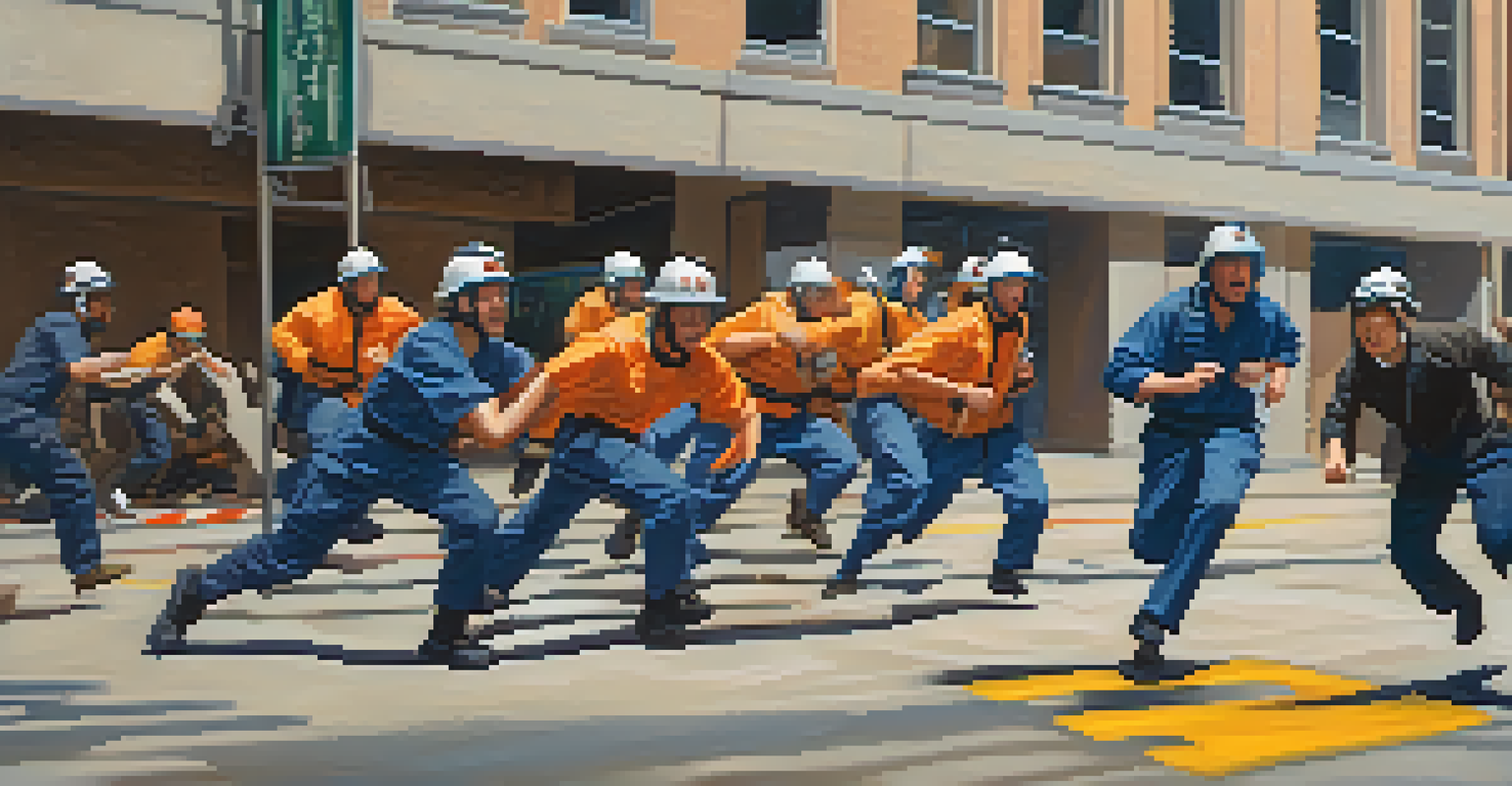Mental Preparedness: Key to Executing Escape Techniques

Understanding Mental Preparedness and Its Importance
Mental preparedness is the ability to stay calm and focused in stressful situations. It involves training your mind to react quickly and effectively, especially in emergencies. Just like athletes visualize their performance before a big game, mental preparation can enhance your chances of successfully executing escape techniques.
The mind is everything. What you think you become.
Imagine you're in a situation where you need to escape—your mental state will determine how you react. If you're panicked or distracted, you might struggle to remember the techniques you've practiced. By preparing mentally, you can ensure that your body follows your mind’s guidance, leading to a more controlled response.
In essence, mental preparedness is about creating a mental blueprint. This blueprint can guide you through the chaos, allowing you to recall vital escape strategies when every second counts. It’s not just about knowing what to do; it’s about being ready to do it.
The Role of Visualization in Escape Techniques
Visualization is a powerful tool in mental preparedness. By mentally rehearsing escape techniques, you create a familiar path in your mind that you can follow during an actual emergency. This practice can significantly reduce anxiety, making it easier to execute your plan when needed.

Think of visualization as a mental dress rehearsal for your escape. Athletes often use this technique to enhance their performance by imagining themselves succeeding in their sport. In the same way, picturing your escape scenario can help you identify potential obstacles and plan accordingly.
Mental Preparedness is Essential
Staying calm and focused in stressful situations enhances your ability to execute escape techniques effectively.
Moreover, this technique allows you to build confidence. The more you visualize your escape, the more comfortable you'll feel when the moment arises. Confidence can be your best ally, transforming fear into decisive action.
Stress Management Techniques to Enhance Preparedness
Managing stress is crucial for mental preparedness. Techniques such as deep breathing, meditation, or mindfulness can help calm your mind, making it easier to think clearly in a crisis. When you manage your stress effectively, you’re more likely to remember and implement your escape techniques.
You can't stop the waves, but you can learn to surf.
Consider deep breathing as a reset button. In moments of panic, taking a few deep breaths can slow your heart rate and refocus your thoughts. It’s a simple yet effective strategy to regain control over your emotions and actions.
Incorporating regular stress management practices into your routine can fortify your mental state. By training your mind to remain calm under pressure, you prepare yourself for the unexpected, turning potential chaos into clarity.
Practicing Realistic Scenarios for Effective Response
Practicing escape techniques in realistic scenarios can significantly enhance your mental preparedness. By simulating various escape situations, you can familiarize yourself with the physical and emotional challenges you may face. This hands-on experience builds confidence and helps solidify your response strategies.
Think of it as a fire drill. Just as schools and workplaces conduct drills to prepare for emergencies, practicing your escape techniques ensures that you know exactly what to do when the time comes. The more realistic the practice, the more effective your responses will be.
Visualization Boosts Confidence
Mentally rehearsing escape scenarios helps reduce anxiety and prepares you to tackle challenges with confidence.
Additionally, these practice sessions can reveal areas for improvement. You might discover certain techniques that require more refinement or specific situations that need tailored strategies. This ongoing refinement process keeps your skills sharp and your mind ready.
The Importance of Physical Fitness in Mental Preparedness
Physical fitness plays a significant role in mental preparedness, especially when it comes to executing escape techniques. Being fit not only enhances your strength and agility but also boosts your confidence and mental clarity. When your body is in good shape, your mind can focus on the task rather than physical limitations.
Imagine trying to run away from danger while feeling exhausted; it can be mentally draining and panic-inducing. Having a solid fitness routine ensures that your body can keep up with your mental plans, allowing you to execute escape techniques more effectively.
Moreover, regular physical activity can improve your overall mood and reduce stress. This enhancement in mental well-being directly contributes to your ability to remain calm and collected during emergencies, reinforcing the connection between physical fitness and mental preparedness.
Building a Support Network for Mental Resilience
Creating a support network is vital for enhancing mental preparedness. By surrounding yourself with supportive friends, family, or colleagues, you can share experiences and strategies for executing escape techniques. This exchange of knowledge fosters a sense of community and collective preparedness.
Think of your support network as a safety net. When you're facing challenging situations, having someone to lean on can provide emotional stability. This support can help you maintain a positive mindset and encourage you to practice your escape techniques more regularly.
Continuous Learning is Key
Adapting your escape techniques and mental strategies through ongoing learning ensures you remain prepared for new challenges.
Additionally, discussing your fears and concerns with others can alleviate anxiety. It normalizes the conversation around emergencies and helps you realize that you're not alone in your preparation efforts, reinforcing the importance of mental resilience.
Continuous Learning: Adapting to New Challenges
Mental preparedness is an ongoing journey that requires continuous learning. As situations evolve, so should your escape techniques and mental strategies. Staying informed about new techniques or advancements in safety practices ensures that you remain prepared for any scenario.
Consider it akin to how technology changes—what worked well a few years ago might not be the best option today. By regularly updating your knowledge and skills, you can adapt to new challenges and stay one step ahead.

Moreover, embracing a mindset of lifelong learning fosters resilience. It keeps your mental preparedness sharp and reinforces the notion that you can always improve, no matter how skilled you think you are.